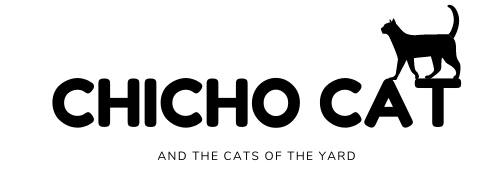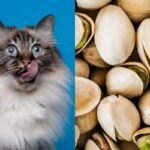Cats, with their discerning taste and sometimes unpredictable eating habits, often spark curiosity among pet owners about the safety of various human foods. Bananas, a widely consumed and nutrient-rich fruit (read here also for beneficial strawberry), become a subject of inquiry in feline dietary discussions. So, can cats eat bananas, and are they potentially harmful to our furry friends? Bananas themselves are not toxic to cats. They contain essential nutrients like potassium, vitamins, and dietary fiber, which can offer some health benefits. However, introducing bananas (or avocados) into a cat’s diet requires careful consideration.
While cats are obligate carnivores, they might occasionally nibble on fruits or vegetables (like carrots) out of curiosity. Cats may show interest in bananas due to their sweetness or texture. Offering a tiny piece of banana as an occasional treat isn’t necessarily harmful, provided it’s offered in moderation and prepared appropriately. Before offering bananas to cats, it’s crucial to peel and thoroughly mash or chop them into small, manageable pieces. Cats have small digestive systems, and offering large chunks of banana might pose a choking hazard.
Excessive consumption can lead to gastrointestinal issues such as upset stomach, vomiting, or diarrhea due to the high sugar and carbohydrate content in bananas, which are not part of a typical feline diet. Moreover, while bananas themselves aren’t toxic, the peel can be problematic. Banana peels are difficult to digest and can cause blockages in a cat’s digestive tract if ingested. Therefore, it’s crucial to ensure that cats only have access to the fruit itself, devoid of the peel.
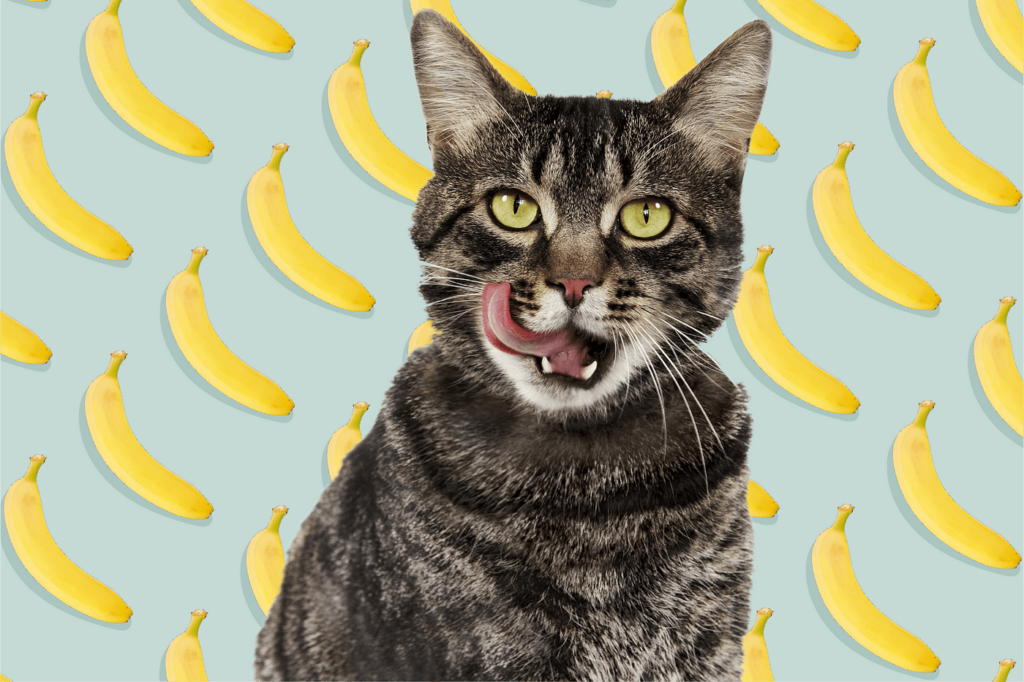
Another consideration is a cat’s individual preferences. Not all cats are intrigued by or fond of bananas. Some might show no interest in the fruit at all, while others may be curious and willing to sample it. It’s essential to respect a cat’s preferences and not force any new foods upon them. If you want to intoduce new fruits like bananas (read more for melon and watermelon),you should ask your veterinarian who can offer you guidance on suitable treats, quantities, and potential risks based on a cat’s specific health needs or dietary restrictions.
Can kittens eat bananas?
Kittens, known for their curiosity and playful nature, often prompt questions about their dietary needs and the suitability of various foods. Bananas, a nutritious and widely enjoyed fruit, spark curiosity among cat owners wondering if their furry little ones can partake in this human snack. While kittens share some dietary similarities with adult cats, there are considerations when it comes to introducing bananas into their diet.
The high sugar content in bananas can potentially upset a kitten’s delicate digestive system. As kittens have developing digestive systems, introducing new foods should be gradual and monitored for any adverse reactions. Additionally, while kittens might show interest in exploring different foods, not all will take to bananas. Individual preferences among kittens can vary significantly. Prioritizing a balanced, specially formulated kitten diet is essential for their growth and development.
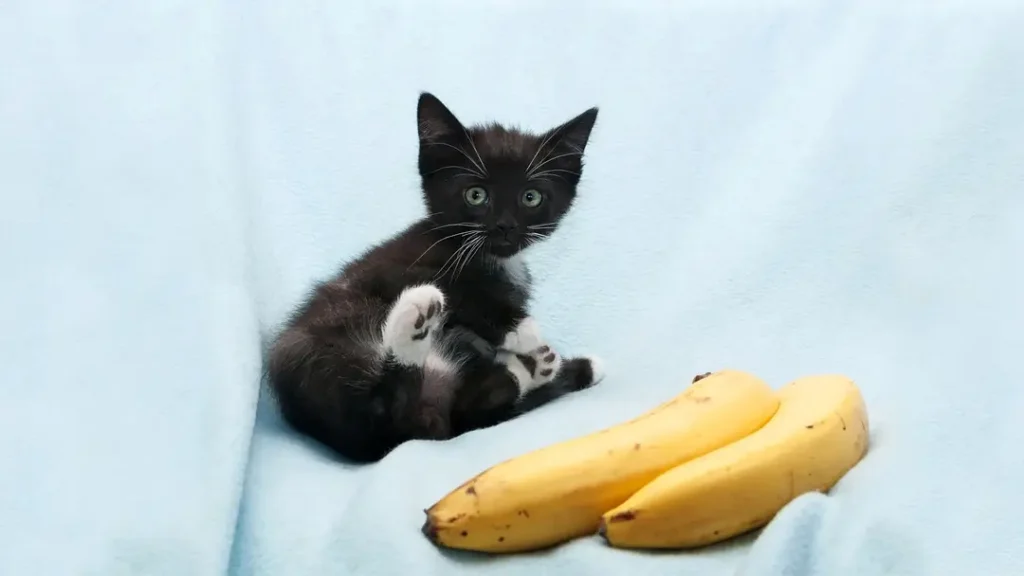
Can cats eat banana bread?
Banana bread, a delightful human treat often adorned with ripe bananas and enjoyed for its sweet taste and comforting aroma, may raise questions among cat owners regarding its suitability for their feline companions. While cats may show curiosity towards the scent or even attempt to sneak a nibble, caution is advised when considering sharing banana bread with them. The primary concern lies in the ingredients beyond bananas that constitute banana bread. Common additives like sugar, flour, eggs, and sometimes nuts or spices are unsuitable for feline consumption.
The high sugar and carbohydrate content in banana bread aren’t ideal for cats, potentially leading to obesity, or other health issues if consumed regularly or in significant quantities. While a tiny nibble of plain banana without additives might not immediately harm a cat, offering banana bread as a treat is strongly discouraged.
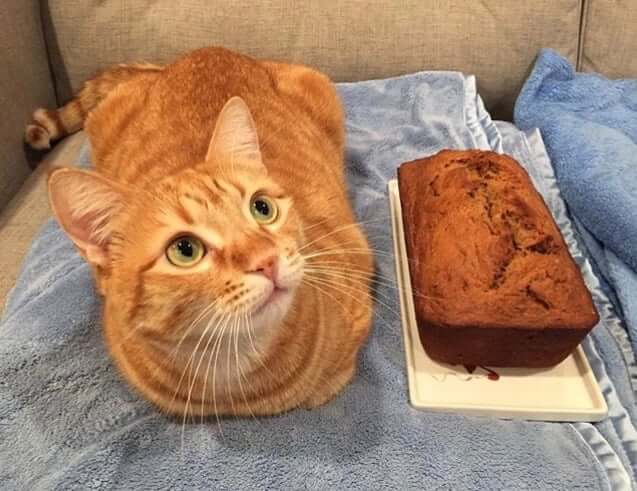
Can cats eat banana peels?
Cats, often curious about various scents and textures, may prompt questions about their willingness to nibble on unconventional items like banana peels. While the flesh of bananas isn’t toxic to cats in moderation, banana peels pose a different set of considerations. Banana peels, unlike the fruit itself, aren’t suitable for feline consumption. They contain tough, fibrous material that’s difficult for a cat’s digestive system to break down.
Additionally, banana peels might have been in contact with pesticides or other chemicals during cultivation, presenting an additional risk if a cat ingests them. It’s crucial to ensure that cats don’t have access to banana peels, even if they display curiosity about them. Safeguarding their environment by properly disposing of banana peels and keeping them out of a cat’s reach helps prevent accidental ingestion and potential health complications.
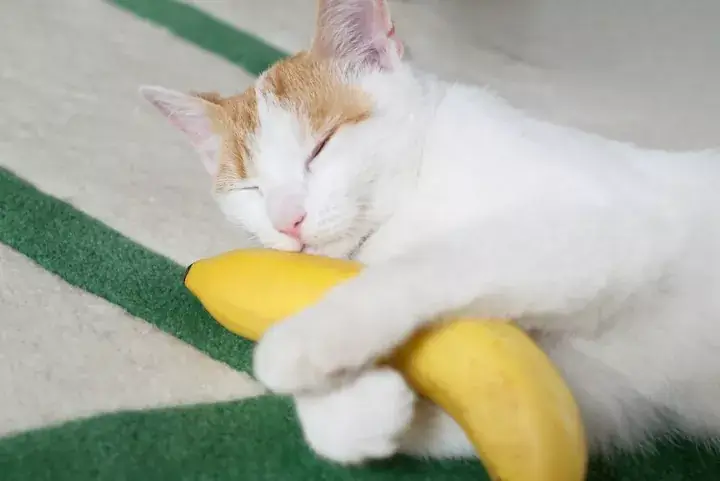
Can cats eat banana chips?
Banana chips, a crispy and delectable treat for humans, may entice cat owners to share this snack with their feline companions. While cats might show interest in these dried fruit slices, caution is advised before offering banana chips to them. In moderation, plain banana chips without added sugars or seasonings might not pose an immediate threat to cats. However, the high sugar content in these chips isn’t ideal for feline diets. Excessive consumption can lead to weight gain, or other health issues in cats.
Furthermore, some banana chips might contain additives, artificial sweeteners, or preservatives that are harmful to cats. Ingredients like chocolate, often found in mixed fruit chips, are toxic to cats and must be strictly avoided. Offering specially formulated treats designed for feline consumption is a safer option to ensure their well-being.
Are cats allergic to bananas?
Cats, like humans, can have various food sensitivities and allergies, prompting queries about their reaction to certain foods like bananas. While bananas aren’t a common allergen for cats, some felines might exhibit allergic reactions to this fruit.
Allergies in cats often manifest as skin issues or respiratory distress. If a cat is allergic to bananas, symptoms may include itching, redness, or irritation on the skin after contact or ingestion. Gastrointestinal issues like vomiting or diarrhea could also occur. However, it’s crucial to note that banana allergies in cats are relatively rare compared to other allergens like fish or certain proteins found in cat food. Allergies can vary widely among individual cats, so while one cat might have an adverse reaction to bananas, another might not show any signs of allergy at all.
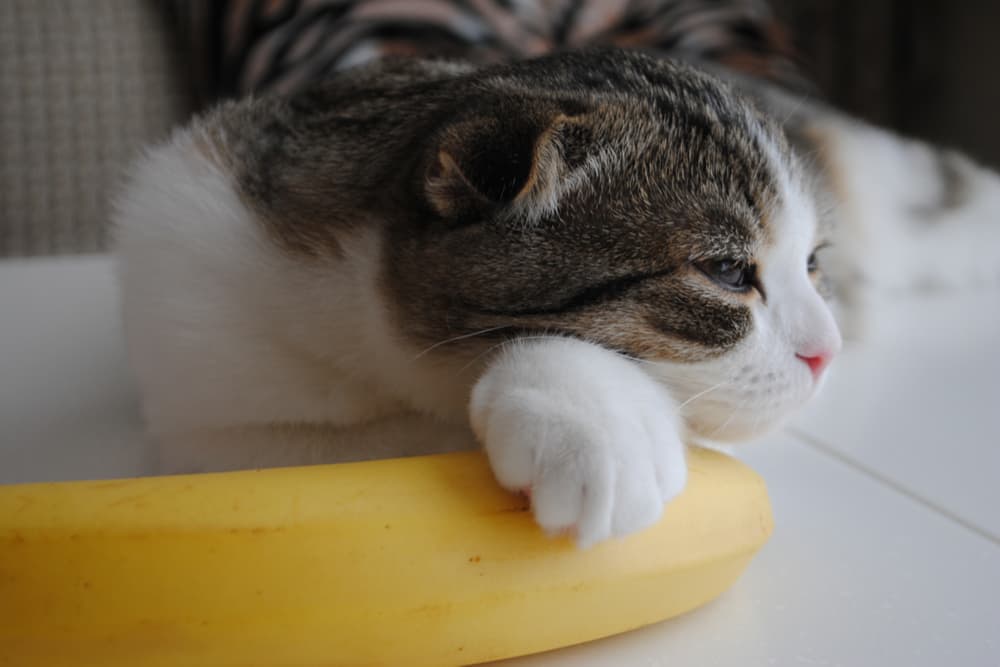
If you suspect your cat has an allergy to bananas, visit a veterinarian immediately. They can conduct tests to identify specific allergens and provide guidance on suitable dietary adjustments or treatments.
Can cats eat banana pudding?
Banana pudding, a creamy and indulgent dessert cherished by many, raises questions among cat owners curious about their pet’s dietary boundaries. While cats might display interest in the aroma or texture of banana pudding, offering this dessert to them raises concerns about their well-being.The ingredients in banana pudding, including dairy, sugar, and sometimes additives like artificial flavors or preservatives, pose potential risks for cats. Dairy products like milk or cream can lead to health issues in lactose-intolerant cats, causing discomfort or gastrointestinal upset.
Sugary treats like pudding can lead to dental problems, or even diabetes. Additionally, some banana pudding recipes might contain xylitol, an artificial sweetener highly toxic to cats. Even a small amount of xylitol can cause severe health complications or be fatal for felines.
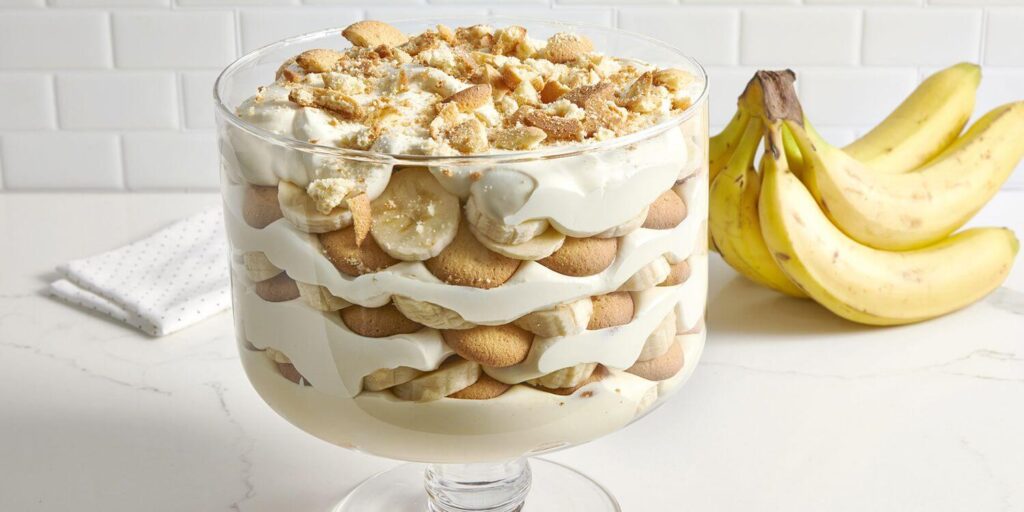
Can cats eat banana muffins?
The aroma of freshly baked banana muffins might tempt cat owners to share this delightful treat with their feline companions. However, while cats may show interest in these baked goodies, offering banana muffins raises concerns about their suitability for a cat’s diet.
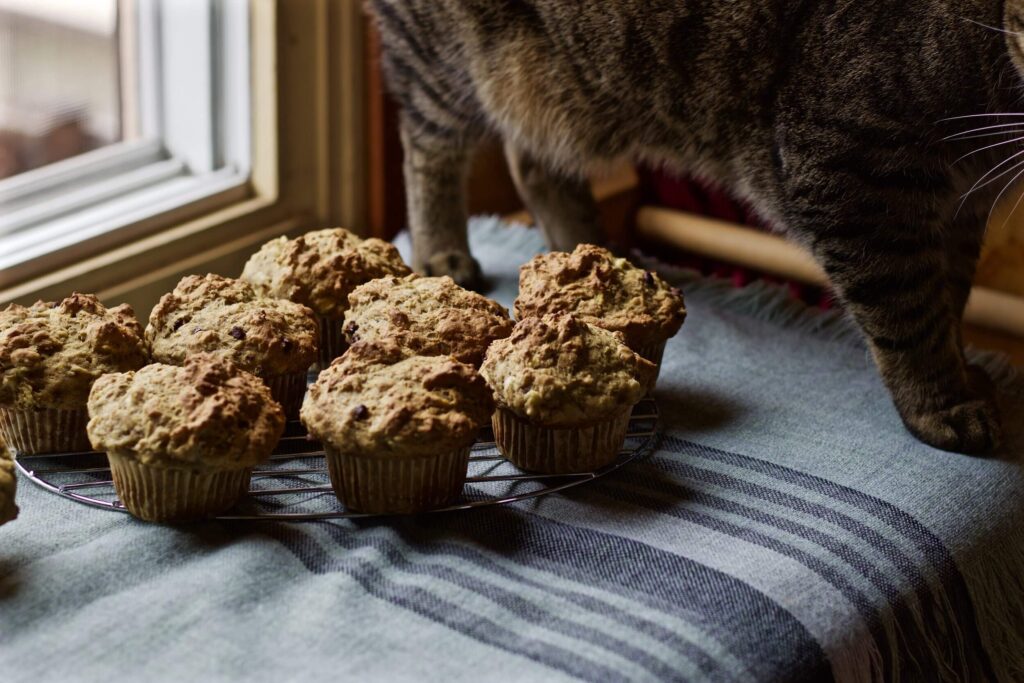
In summary, while bananas themselves aren’t inherently toxic to cats and can offer some nutrients, they should be treated as an occasional, small treat. Their introduction into a cat’s diet should be done cautiously, considering individual preferences and ensuring proper preparation to avoid any potential digestive issues or choking hazards. Prioritizing a balanced, species-appropriate diet for cats remains crucial for their overall health and well-being.
